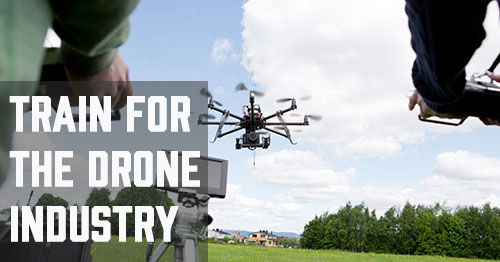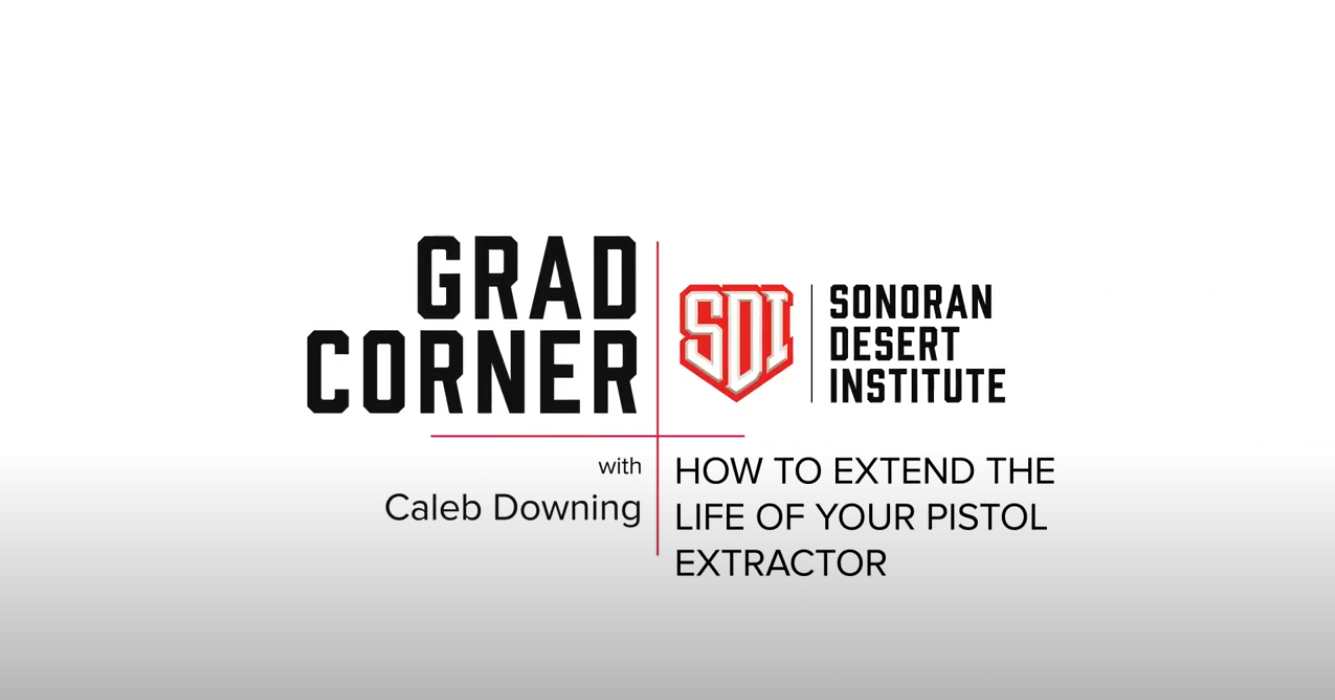
Which SDI Drone Program Is Right for You? | Online Uncrewed Technology Education
- Steve Ross
If you’re exploring the drone industry, SDI offers two distinct programs in uncrewed technology: the Certificate in Uncrewed Technology – Aerial Systems and the Associate of Science in Uncrewed Technology. Both programs are delivered 100% online with hands-on elements, allowing you to train without relocating or interrupting your current responsibilities.
No matter where you’re starting from – whether you’re new to drones, shifting careers, or leveling up – these programs are designed to build your skills, boost your confidence, and fit your life.
The Certificate in Uncrewed Technology – Aerial Systems
The certificate program is a great place to begin if you’re looking for a strong foundation in drone operations, safety, and flight management. It’s built for those who want to:
- Enter the UAS industry quickly
- Learn how to safely operate small uncrewed systems
- Understand flight planning, regulations, and the needed sensors for UAVs to be useful
- Get hands-on experience with small drones, simulators, and different sensors
This is the path for students who want practical skills they can start applying right away. You’ll finish with the knowledge and confidence to step into the field as a capable operator or flight manager.
Certificate Program Courses
UAS 101: UAS Fundamentals – 4 Credit Hours
Introduces the history and evolution of UAVs, technical subsystems of UAS (aircraft, payload, navigation, control), FAA regulations, and UAS operations across civil, military, and commercial sectors. This course provides the best platform for taking off into the drone industry.
UAS 201: sUAS Sensors and Remote Sensing – 4 Credit Hours
Covers sensor technology, remote data collection, aerial data analysis, and matching sensors to missions. Provides foundational skills in aerial remote sensing. In the industry, knowing how to fly isn’t the only core importance; knowing how to match different sensors to applications is just as important.
UAS 202: UAS Aviation Management – 4 Credit Hours
Teaches UAS operational models, risk management, airspace regulations, safety standards, and flight team management. Prepares students for commercial UAS flight operations as both a flight operator and a low to mid-level UAS flight operations manager
UAS 250: FAA sUAS Professional Remote Pilot – 4 Credit Hours
Prepares students for the FAA Part 107 Remote Pilot Exam. Includes simulator training, drone flight fundamentals, and a complete review of FAA regulations and UAS safety standards. It’s not just about knowing the rules and regulations, but also about applying them practically in the field with hands-on skills.
Complete Course descriptions can be found here.
The Associate of Science in Uncrewed Technology
The associate degree expands on the certificate courses and introduces advanced skill-building in drone design, thermography, Geographical Information Systems (GIS) mapping using drones, and systems engineering. It is designed for those who want to:
- Build and configure custom drone systems
- Enter technical or leadership roles in UAS development
- Work in specialized fields like aerial thermography or GIS
- Gain exposure to project management, engineering concepts, and electronics
If you’re ready to take your understanding further and open up a wider range of career opportunities, the associate degree provides the depth and specialization to help you get there.
Associate Degree Program Courses
Includes all four Certificate courses:
- UAS 101: UAS Fundamentals
- UAS 201: sUAS Sensors and Remote Sensing
- UAS 202: UAS Aviation Management
- UAS 250: FAA sUAS Professional Remote Pilot
Plus, additional discipline-specific and general education courses:
UAS 213: sUAS Design, Build, and Fly – 4 Credit Hours
Hands-on drone assembly and configuration. Covers power systems, autopilot setup and configuration, sensor integration, and flight-readiness.
UAS 231: UAS Flight Test and Evaluation – 4 Credit Hours
Introduces the principles of flight testing and system performance evaluation, including handling quality tests and the collection of performance data. Walks the student through an sUAS flight test campaign.
UAS 234: sUAS Thermography Level 1 – 4 Credit Hours
Covers infrared science and aerial thermographic scanning. Students receive and use their own handheld IR camera. Students will learn to analyze thermography datasets and see the usage of the sensor for different applications.
UET 102: Fundamentals of Electronics – 4 Credit Hours
Basic electronics for drones, including circuit building, microcontroller programming, and electrical theory relevant to UAV systems.
SYS 212: Project Management for UAS Engineering and Technology – 4 Credit Hours
Covers formal project planning with applications to UAS tech projects. Students learn management processes for technical teams and initiatives.
UAS 205: Introduction to Geographical Information Systems – 4 Credit Hours
Teaches how to plan and execute GIS-based drone missions and analyze geospatial data using industry tools.
SYS 201: UAS Systems Engineering Management – 4 Credit Hours
Introduces systems thinking, ethical engineering, and the lifecycle of developing UAS technologies.
AGT 100: American Government – 3 Credit Hours
Explores U.S. governmental systems and their impact on technology and public policy.
ENG 101: English Composition I – 3 Credit Hours
Foundational writing and communication course for academic and workplace success.
MAT 101: Mathematics for Technical Trades – 3 Credit Hours
Applied math for technology fields, including geometry, algebra, and trigonometry.
PSY 101: Introduction to Psychology – 3 Credit Hours
Study of human behavior, cognition, and applied psychological concepts.
SCI 101: Introduction to Physical Science – 3 Credit Hours
Covers core physics and chemistry topics relevant to drones, such as force, energy, heat, and optics.
SDI 101: Success in Distant Learning – 1 Credit Hour
The purpose of the course is to empower students to navigate the challenges and leverage the opportunities presented by online education.
Complete Course descriptions can be found here.
Built for You
These programs are not sequential. You do not need the certificate to start the associate degree. Each program is designed to meet students where they are – whether that means starting small and gaining confidence or diving deep into the tech behind tomorrow’s uncrewed systems.
Whichever path you choose, you’ll be gaining skills that are in demand, learning on your schedule, and building the confidence to step into a growing industry with real-world experience.
Still not sure which is right for you? Connect with our admissions team. They’re here to help you find the path that fits your life and goals.


